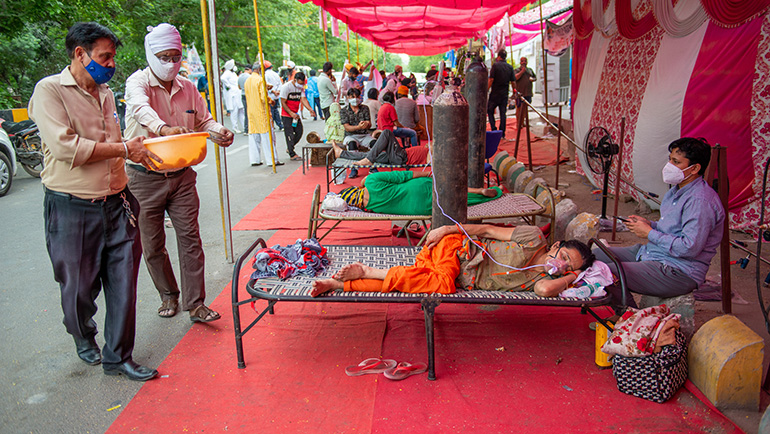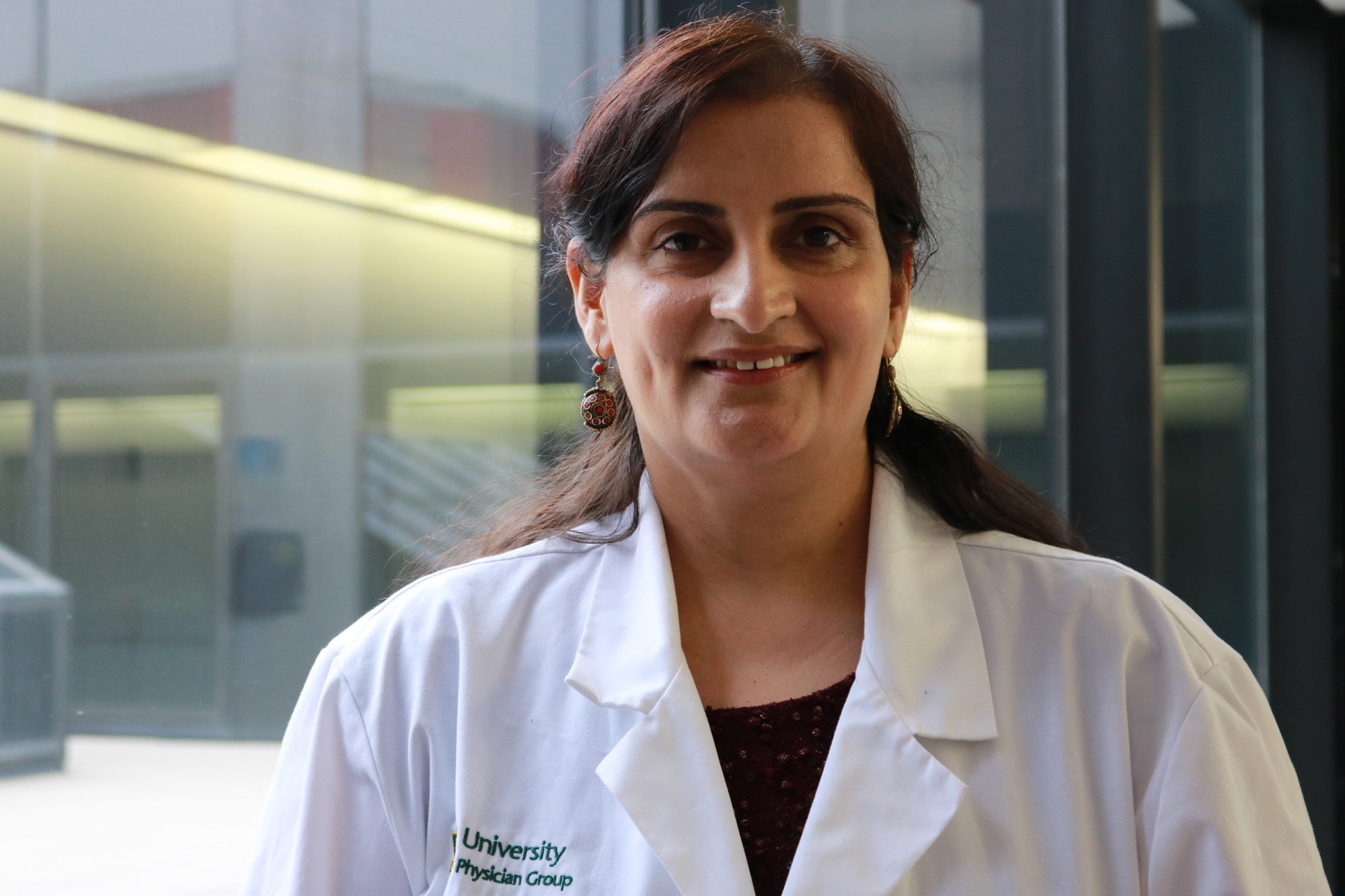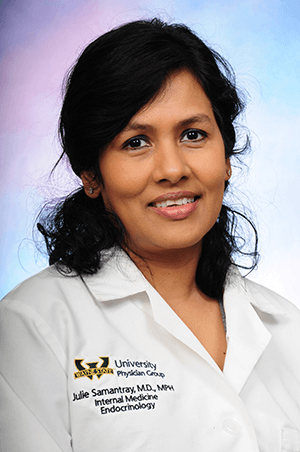
While other people relax into a Friday evening, Dr. Teena Chopra settles into the second part of her “work” day.
For two months, Chopra has spent weekends (and any other day needed) helping to staff a free COVID educational assistance hotline for people in her home country who desperately need help combating the illness. Personally, Chopra has helped many friends and family members who contracted the disease, including her father-in-law, who was hospitalized for a month in the ICU and now has post-COVID long-hauler syndrome.
“India is part of me. I was raised there. We all have so much of our family there. My brother is in India. My 90-year-old aunt, who I've tried to talk to every day and guide through this,” said Chopra, professor of infectious diseases at the Wayne State University School of Medicine. “Our roots are there, so our soul is hurting. Since we can't be there, this is one way of giving back.”

Set up by the Michigan Chapter of Indian-American Community Services in Troy, the hotline is a way for Indian physicians practicing in Michigan to help those back home. Chopra takes questions from people who have been exposed and are looking for guidance, and others who have mild COVID symptoms and want some education on how to keep other family members from being exposed in close-knit family homes. It’s one of the main questions Chopra receives — how to keep separate the infected and non-infected family members.
And while she cannot be there physically, Chopra said hearing a familiar voice helps form an immediate bond.
“Language is a big factor that connects people,” Chopra said. “They all understand English, but when I speak to them in their native language and I tell them why I am suggesting, for example, that they don’t need to use steroids early on, it can help break down barriers and they will see the patient get better.”
But a bigger problem stems from logistical challenges, due to lack of space and multi-generations living under one roof. “I'm an infection control expert,” said Chopra, who also serves as corporate medical director of infection prevention, hospital epidemiology and antibiotic stewardship at Detroit Medical Center and WSU, “and I find it sometimes challenging to advise them on it because there's not enough room.”
“Indian culture is also a little bit different,” Chopra continued, “in that if somebody is sick, they really sit on their bedside and do whatever they can, even if it is more for emotional support. But during COVID times, you don't want that. You don't want anybody sitting nearby who can easily get infected. That’s part of the reason why the infection has spread really fast in India.”
At the height of the second wave in April and May, as many as 170,000 people died. As of June 15, though, India reported 60,471 new COVID-19 infections over the past 24 hours — the lowest since March 31. The overall death toll now sits at 377,031, which has been reported to be greatly undercounted. The virus has also spread to India's vast hinterland — remote parts of the country far from, and less connected to, urban centers — where two-thirds of the population lives and vaccinations have been slower.
The Delta variant, first identified in India, is also highly transmissible and currently sweeping through the United Kingdom. And as of June 16, it makes up at least 10% of all cases in the United States — up from only 2.7% of cases on May 22.
“It is not India’s problem. Until COVID is over in the world, it is not over for us here in the United States,” Chopra said. “That is something we should realize because it's not over yet for us until it is over for them.”

Also helping relief efforts is Wayne State School of Medicine’s Dr. Julie Samantray, who has been working with the Odisha Society of the Americas (OSA) and its COVID initiative. Samantray, whose home state is Odisha (formerly Orissa), has been helping to raise money through U.S. nonprofits connected to Indian groups and is also involved with three other national organizations recommended by the Michigan online Indian community portal, Miindia.com.
Odisha, like much of India, has struggled to secure enough medical oxygen for those who need it. One of the OSA’s initiatives is providing oxygen shelters and cylinders. “This would be for people with mild to moderate symptoms, someone who doesn’t need hospitalization, but providing them with oxygen until they can find a bed,” said Samantray, associate professor and course director of endocrine pathology at the WSU School of Medicine and service chief of endocrinology at Karmanos Cancer Institute.
Samantray also takes part every Saturday, from noon to 1 p.m., in a resource called Ask Our Experts where anyone can log in and ask questions related to COVID. Topics that Samantray and others field include vaccinations, how diabetes interacts with COVID and mental health counseling.
“The truth is, until it hits you personally, you don't really understand the extent of the grief or pain that they're going through. But at least I can empathize with them,” Samantray said. “We won't be able to provide for everybody, but we can provide whatever we can, in whatever way we can.”
